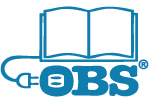In light of all the flurry of activity these days around the (re)selling of intangible digits, we might be wise to re-think the focus of our predominant, copy-based business model. In an economy of scarcity with tangible artifacts like hardcovers, if I give you my book, my hands become empty. Alternatively, in an economy of abundance, if I share my e-book with you, we all become richer in a way: not only do we both have the same e-book to discuss, but we may add more value to the book itself by virtue of sharing, discussing, and referring to it. It’s limiting to assume that the only value comes in the form of a user paying for a discrete thing, be it “e” or “p.”
Let’s take things one step further. Once a Pedagogical Interface (PI) surrounds a library of content, new business models may emerge based on monetization of measurable, incremental change on both sides of the reading equation – change in the users, as they demonstrably learn from the body of content (by accessing it through the PI, answering questions, taking tests, etc.), and change in the content itself as its evolving metadata chronicles the users’ thought paths, connections, and comments. Harnessing this new-age difference engine – a term coined by Charles Babbage, Victorian computer pioneer to describe a mechanical calculating engine – becomes the work of PI.
